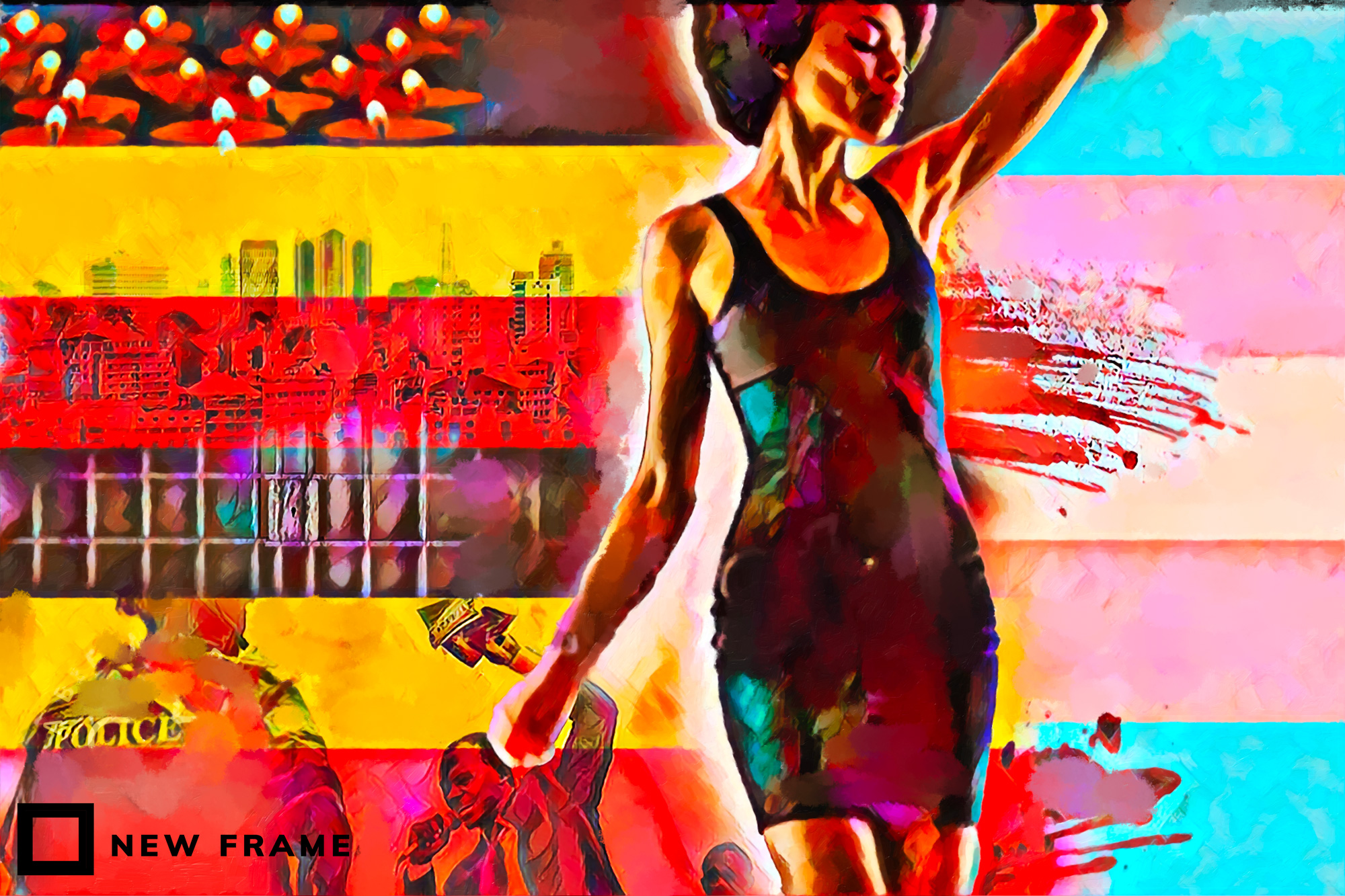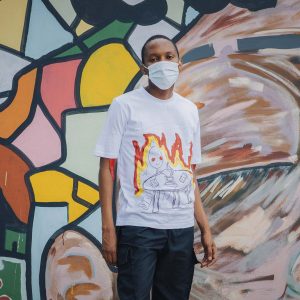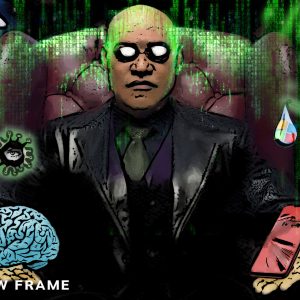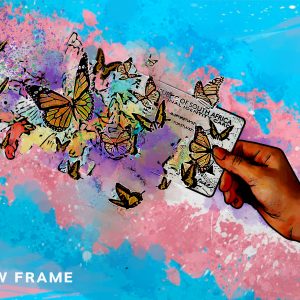Uganda’s bill a double punishment for trans folk
The Sexual Offences Bill has dealt many of the country’s transgender sex workers a further blow, but activists are determined to prevent it from becoming law.
Author:
27 May 2021

On a Sunday evening in June 2019, at the back of a building in central Kampala, Shammie Pretty took to the centre of the outdoor dance floor. As the spotlight followed her, Pretty, a tall transgender woman, made her way slowly through the crowd of queer folk, gyrating her hips in a mesmerising traditional Kiganda dance as patrons tucked Uganda shilling notes into her flowing skirt.
With employment opportunities for transgender women in Uganda extremely limited, Pretty, like many of the queerphobic country’s trans women, relied on sex work to survive. She hoped her occasional dancing gigs were a way out of sex work.
“I want to start my own dance group,” she said that evening. “I really believe it will help me. It will help us.”
Related article:
But two years later, over a patchy WhatsApp call, the 22-year-old says: “The last time I saw you, I told you I want to work, but it is very difficult to work in Uganda. So, up to now I am still a sex worker, because we can’t access jobs. No one will give us jobs, so we do sex work to survive. Here in Uganda, trans women suffer a lot. We suffer a lot. If you [don’t] get a client, that means you are not going to eat. You are not going to dress. You won’t pay rent. You won’t survive. We sell ourselves to get basic services. If you need water, you have to sell yourself to get that.”
In a further blow to transgender sex workers, Uganda’s parliament recently passed the Sexual Offences Bill.
Redefining sexual conduct
The bill aims to prevent sexual violence, enhance punishment of sexual offenders and provide for the protection of victims during sexual offences trials.
“This is the law that is going to redefine sexual conduct in this country,” said Jacob Oboth, chairperson of the country’s legal and parliamentary affairs committee. “This piece of legislation is not for the women only but for all. Any Christian or Muslim would be happy that there is something taken from the Bible and legislated upon.”
Adrian Jjuuko is the executive director of the Human Rights Awareness and Promotion Forum. Jjuuko says that although the bill “is laudable insofar as it seeks to consolidate the law on sexual offences and provide for the protection of victims of sexual offences”, it also contains provisions that would push the health and rights gains made by sexual and gender minorities “back by decades”.
The bill further criminalises same-sex sexual relations by explicitly defining “carnal knowledge against the order of nature” to include anal and oral sex, the use of sex toys as well as explicitly barring sexual relations between persons of the same sex.
Related article:
It also extends criminal liability to both clients and intimate sexual partners of sex workers. “The focus on penetration will most likely increase the use of forced anal examinations to prove penetration, despite it being scientifically useless to prove this. We also expect more arrests because of the wider criminalisation,” says Jjuuko.
Jjuuko adds that another “blow to the efforts to further protect women and girls from sexual violence” is the removal of the clause that provided for the right to withdraw consent previously given at any stage of a sexual act.
“All these sections are highly likely to increase harassment and discrimination against people living with HIV, women, sex workers and LGBTI persons by encouraging arbitrary arrests, forced anal examinations and forced HIV tests,” says Jjuuko.
Daisy Nakato Namakula is the national coordinator of the Uganda Network of Sex Worker-led Organisations (Uneso). Namakula says that the further criminalisation of both same-sex sexual relations and sex work will mean that for trans sex workers “the punishment will be double compared to [that of] a [cis-gendered] female sex worker”.
Mob violence
Although the bill has yet to be signed into law, Namakula says mob attacks are likely to increase.
The country’s president signed the Anti-Homsexuality Bill into law in February 2014. Although it was eventually scrapped on a technicality, a report conducted by Sexual Minorities Uganda found that, subsequent to the bill being signed into law, the country saw a significant spike in anti-queer violence, mob attacks, lynching, blackmail, job losses and suicides.
Another spike in violence took place in 2019, says Jjuuko. “This was in large part due to the revival of vigorous debate in parliament and in the media about the impending reintroduction of an Anti-Homosexuality Bill. Between August and November 2019, there were 27 recorded cases of violence or threats of violence against LGBT persons and organisations. These involved two murders of transgender women.”
Related article:
“Here in Uganda,” Namakula says, “when a law has just been passed, there is a way [the public] implements it. I remember in 2014, when they had just passed the Anti-Pornography Act, how women were beaten and raped. If the community felt like what you were dressed in was not appropriate, they would beat you and undress you. Like mob justice … So we are anticipating the same violations [will] happen, because right now when you look in the media, everyone is writing about [the passing of the bill]. Everyone is posting about it. It has caught fire. It is the story now. And you can just imagine what is going to happen with the sex work community.”
Echoing Namakula’s fear is Beyonce Karungi, the executive director of Transgender Equality Uganda. “We haven’t seen anything yet,” says Karungi, “but we believe people are going to take the law into their own hands. Things are going to happen because this bill has been passed. There is a lot that is going to happen to us. Since people have a lot of hate. We are going to have a lot of problems now.”
Karungi admits to feeling “sad and so afraid, because … trans people are the first of the LGBT community to [be attacked] … When people in Uganda look at me, they think I’m gay so they want to kill me. So I’m at risk. My life is at risk.”
Standing in solidarity
In a two-bedroom house in the village of Nabwojjo in 2019, Masiko Mbabazi* spoke of her constant fear for the safety of her friend, Shawn Mugisha, a transgender man and trans rights activist.
“You know, he is scared all the time,” she said. “I have to keep a care package for him in my car, a bag in which I put trousers, sneakers, vests and whatever. Just in case of anything. You understand? As we speak, I am trying to convince him to move [from here]. He has been living here for three years. And three years in the same place is not safe for him. I believe people have started seeing, so I believe for safety purposes, he should not be in one place for even three years.”
Two years later and Mugisha says he was recently evicted after word got out that he “hosted transgender women and some people [who] were in an arrest that was televised”.
Related article:
Despite the passing of the bill pushing him to “increase my personal security”, Mugisha says the fear of more discrimination and violence should spur the country’s queer folk, particularly transgender communities, to “stand in unity and in solidarity”.
“We need to be smart about our advocacy. We need to think about things like how do we live safely amid this whole chaos. How do we safely manoeuvre in the cities and villages we are living in? How do we keep safe, but also do our advocacy? Because, yes, the bill has passed, but that does not stop our lives from going on.”
Karungi agrees, although she admits that “we cannot do it on our own. We have to meet with the lawyers and see what strategies we are going to use to overcome this.”
Namakula adds that Uneso will be holding a national dialogue made up of the country’s sex worker organisations to try and map a way forward.
Related article:
“You know, [the passing of this bill] caught us off guard. No one was prepared for this … This was a shock. So, yes, the bill has been passed, however, it has not yet been signed into law. If we work hard with partners and the entire movement, hopefully there could be some change. We don’t know, but we are hoping so. So we are really going to have to work hard, as hard as we can, to ensure that these clauses are amended.”
While activists push to block the bill becoming law, Pretty holds little in the way of hope. “I myself, I’m a trans woman. I can’t change my gender,” she says. “I can’t change my feelings because of the people around me. So from my side, I don’t have any hope. I’m not sure Uganda can change, because they don’t like us. They don’t want us. So I don’t have hope.
“I love my Uganda. But these attacks, the attacks we face … If I get the opportunity to leave Uganda, I will go and look for a better future … I will start my dancing group. That would work for me. I want to leave Uganda. I want it. For the sake of my life.”
*Name changed to protect her identity.





